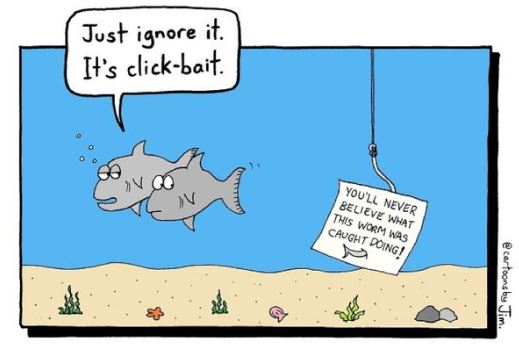Cyber Creepy
Funny, isn’t it? How a word sneaks in and becomes a part of a population's vocabulary? Like “bummer”... or “cyber”. For some odd reason the word “cyber” has always creeped me out - I picture Dolph Lundren in RoboCop . In my memory, the movie was CyberCop - but actually it was RoboCop (a little more friendly sounding).
Cyber is used as a descriptive prefix to indicate a relationship with information technology such as computers, computer networks or the internet - such as cyberspace or as a compound noun - cyber space. There are scary words associated with cyber such as worms, viruses, spiders, bots, crawling (which describe bug-like activity that occurs on the network or web - creepy).

Cyber Crime is not a fun topic and is actually downright scary. We would rather ignore the danger and barrel ahead as if Cyber Crime is not a danger to us personally. I think of the idea of wearing a helmet while downhill skiing as kind of a drag; but, (just like Cyber Crime) when you think of horrible realities of what can happen - like Liem Neisen’s wife or Sonny Bono (scary), a helmet suddenly seems less a spoiler and more of a prudent choice. And just so, a conversation about Cyber Crime and Cyber Security (what you can do about it) is a prudent idea.
Coming from a medical background, I have been indoctrinated annually on how to prevent hackers from gaining access to computer data that includes insurance, financial and demographic information (and you can thank me later for all those efforts). It feels like I come to this conversation with a foundational understanding. But as I prepared for this diatribe, truly, Cyber Crime is spine tingling (I should have saved this Blog for Halloween) because of the range of cyber crime types and our vulnerability as individuals.
What is the Danger?
Cybercrimes harm the security and financial health of an organization, society or a person. In the 1970’s when cybercrime was first evolving, cybercrimes were typically committed by business insiders stealing access to documents for malicious intent or government agencies for weaponization or strategic planning.
It has evolved into hackers -
- spying and harvesting information in order to steal or commit identity theft from individuals.
- install malware on a computer system which then allows take over of that system for a variety of purposes; one purpose I recently learned of is for expansion of botnets. This network of computers can be thought of as a bunch of zombies (again totally creepy) under the control of a remote system when the computer is not in use by the actual owner. The network of zombie computers can be used to remotely create financial gain for the controlling force (and this can be done for long periods of time without impact to the computer/IP owner driving up the general cost of goods or advertising).
- install ransomware - a software that locks the owner out until a ransom is paid and then the lock is removed.
Victims have spent $126 billion globally and lost 19.7 hours dealing with resolution of cybercrimes. So, like wearing a helmet in downhill skiing, an ounce of prevention is worth a pound of cure.

What can you do?
1. Turn off your computer at night (or when not planning on using the computer for a period of time).
2. Periodically, clean out your “Cookie” files. When you visit sites on the internet, you probably have noticed that you are asked if you will accept cookies. Although the cookies may improve your experience of the website and are necessary at times for use of a website, they also can track your internet usage - sites you visit and trends used for marketing by third party advertisers. They can collect and transmit data regarding log-in credentials and PII (Personally Identifiable Information). And cookies can bog down your computer. To find instructions for cleaning out your cookies cache - I would recommend reviewing articles
by , Norton or other sources as there are points to consider before simply deleting all of your cookies (as some of your sign-ins will no longer autofill for example). And, seriously, I never thought the word “cookie” could be made to sound scary - but there it is. The world is officially upside down.
4. Don’t visit websites that don’t include the HyperText Transfer Protocol Layer Security: To move anywhere on the internet, you have to clarify where you want to go. The method is http (hypertext transfer protocol) - it signifies that you want to transfer from your starting point to an endpoint. Whenever you go to a website, make certain that the web address starts with “https://” (rather than “http://” - dropped the “s”). This “s” at the end of “http” signifies that the website is utilizing an encrypted transport layer security so that your activity is not picked up by packet sniffers (creepy)
- these are protocol analyzers that can be used by hackers for spying on network user traffic or collecting passwords.
5. Fishing - ok, now somehow this relaxing and fun pastime has become creepy too!


But spelled phishing. Phishing is usually an email that is trying to trick you by sounding like your bank or physician’s medical office, or a jail in Mexico with your nephew in the tank - but you will notice something is off.
- Usually the English usage is broken, there is poor spelling.
- There isn’t an “s” in the , http://www.etc (you can see this when you hover your curser over the link).
- There is something extremely demanding about the request with a time limit set on your action and a big consequence for inaction.
DON’T OPEN THESE EMAILS OR CLICK ON ANY ATTACHMENT IN THE EMAIL OR REPLY TO THE EMAIL. This is called “click-bait” (to be consistent with the phishing theme - so thoughtful). Clicking on the click-bait may allow the entity (creepy) to install malware or ransomware on your system. If it is made to appear to come from someone you know (bank, medical, etc), contact them directly through your normal avenue. Clean out your spam file periodically.
6. Complicate and Update Your Passwords: Ok. I mentioned it. I will move on as I get hit all the time with information about keeping passwords complicated and changing them periodically; I’m sure you do too. But after this creepy education on CyberCrime, I don’t think I will complain (as much) about it.
7. Use caution when purchasing Smart Home Devices and personalize the Password: Smart Home Devices can increase vulnerability as they can be a breach into your home network for spying or installing malware or ransomware. In an effort to keep costs down, the device may not have the security settings ideal for your situation. Be cautious in selecting/purchasing. And you can increase your security by changing the default password as soon as you can.
8. Backup your system often by putting information on a USB stick or SSD based backup device. Set up a regular backup schedule to keep your data safe. Clouds are a great idea, but apparently malware is slick to that trick and typically have an automatic reach into whatever cloud attachment you may have to infect that as well.
9. Use security software such as , Norton
Here’s a little plug: , HughesNet Satellite is the most secure internet available - which is why the military uses it. And we sell HughesNet.
To close out this trip through creepy-ville, I will quote Secure Works : If you follow all these tips, you’ll be far safer than most. But no-one is completely safe so, if you think your device or laptop is behaving strangely, take it to your local repair shop and get it checked out. Or if it’s one you also use for work, contact your IT department immediately.
Stay safe and enjoy the remainder of summer…let’s hope we have minimum fires this year, right? And remember to keep a “defensible space” around your house free from flammable vegetation … and wear a helmet when downhill skiing (…. Oh, bummer).


















